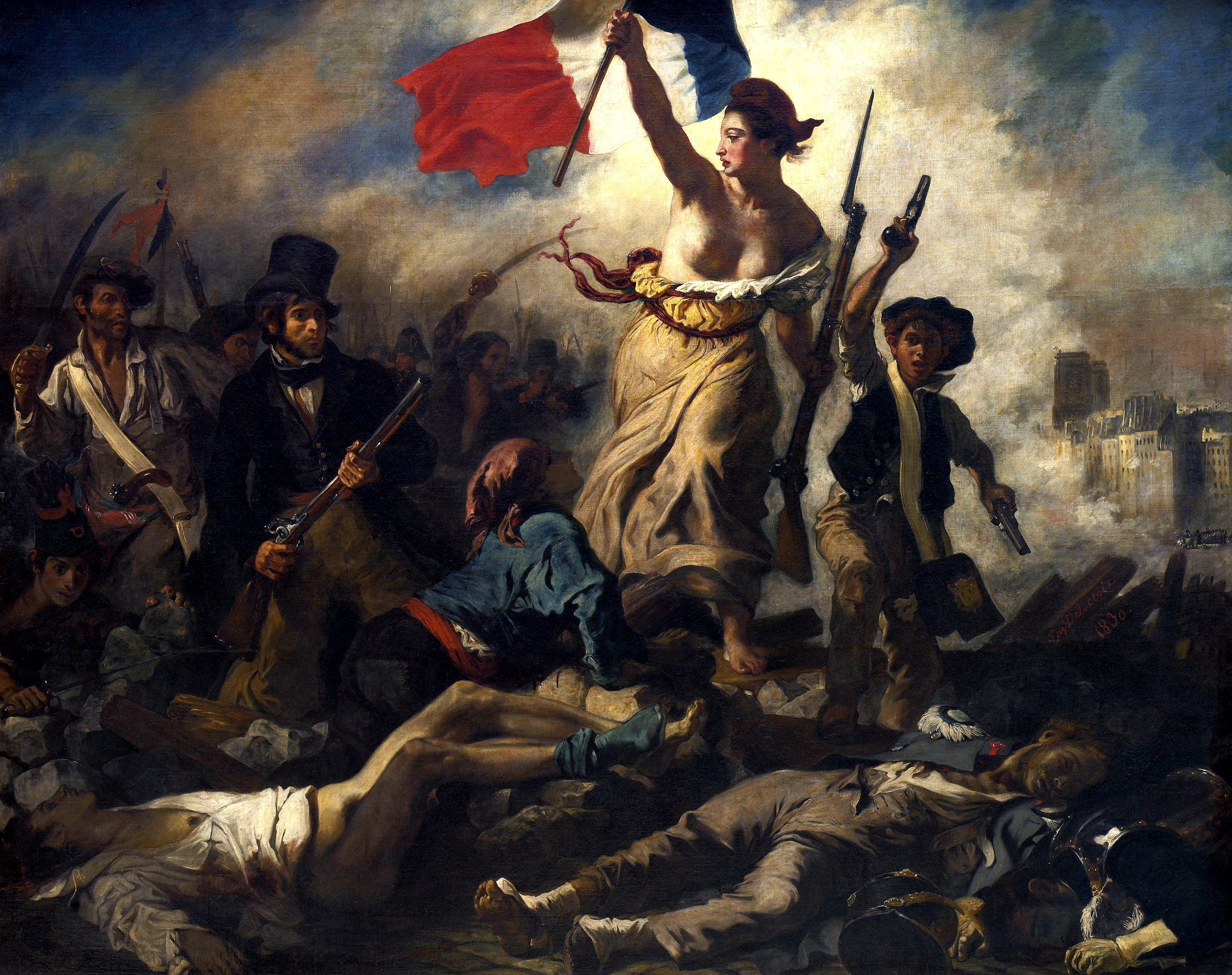 |
| La Liberté Guidant le Peuple by Eugène Delacroix |
Regarding social media, I agree with everything that you all have said. I'm not so worried about it anymore.
Reminds me a little of that passage from Walden, where he talks about what's the use of a big, fancy house when the inside hasn't been improved. Of course, our project satirizes this exact phenomenon, the fact that--to a greater and greater extent--this is how we all live our lives, especially now in cyberspace. That the great mass of us are red giants with no inner integrity, all ready to collapse at any moment. Something about that goes along with David Brooks's favorite sociological study (cited in his book The Narcissism Epidemic):
In 1950, thousands of teenagers were asked if they considered themselves a "very important person?" Twelve percent said yes. By 1990, that number had jumped to a whopping 80% who said, “Yes, in fact I am a very important person.”I might argue that the number has actually come down in the last 5 years, although I don't have the data for that.
The bottom line is, as with all things in the project, it will happen if the Nietzschean dammed-up lake reaches the requisite depth. What I was doing was flowing away to some imagined destination, longing for Camusian suicide.
On a similar note, I continue to be interested by George Eliot's statement that "the growing good of the world is partly dependent on un-historic acts" (cited in "The Female King: Tennyson's Arthurian Apocalypse").
As Eliot L. Gilbert goes on to explain,
Such a conclusion follows inevitably from the idea that history, simply by existing, exhausts possibilities, leaving its readers with a despairing sense of their own belatedness and impotence. And this despair in turn leads to anxious quests for novelty, to hectic avant-gardism, and in the end to an inescapable fin de siecle ennui.The Female King is a solution to this in that he "triumphs over time by never having entered time" (Rosenberg, "Tennyson and the Passing of Arthur"). His "abdication" of the traditional kingly role, his passivity and emasculation invites and initiates a kind of female misrule, a distinctly feminine "massive and very deliberate attack on history," symbolized most strikingly by Delacroix's bare breasted Liberty, "striding triumphantly over the bodies of half-naked dead men" (Gilbert, 58, 70):
The Dionysian guillotine haunted the imagination of Europe; a mechanical vagina dentata, it produced, with its endless emasculation, an unstoppable blood flow, an unhealing menstual wound curiously like the one suffered by the maimed king in the story of the Grail.Our project considers this sense of impotence and belatedness, and examines the modern notion that oblivion and un-historical acts (suicide?) might be the best gift we can give to our world. In recent decades this has been the subtle (not so subtle?) message of the environmental movement as well. And yet, our faith tells us that we are ends in ourselves, that God loves us for our own sake. And that, far from winding down or being exhausted, our universe seems to be accelerating, drawing energy from some unidentified and limitless source.
It's interesting to me that Arthur White was conceived at a time when emasculated indie bands were de rigueur, and that, inspired in part by the large-group awareness training organization I was in, I said screw that. And that, in a related development--unlike my kingly namesake--I have sired a veritable quiver-full of children, leaving an unapologetically large patrilineal footprint and singlehandedly melting the country of Iceland.
So I see how Arthur both is a manifestation of this feminizing tendency and its opposite.
No comments:
Post a Comment